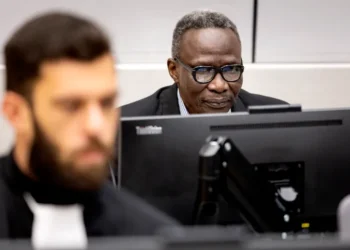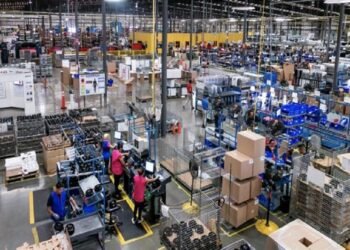As the Sudanese army retakes ground in Khartoum, some displaced residents are slowly returning to assess the damage and reclaim a semblance of their former lives in the war-torn capital.
Abdulilah Mohamed, an elderly man from the Shambat neighbourhood in Khartoum, recently returned to the shell of his family home. After nearly two years of civil conflict between the Sudanese Armed Forces and the paramilitary Rapid Support Forces (RSF), he found his house reduced to rubble, his belongings scattered among broken walls.
“They left nothing behind. They took everything and destroyed everything,” Mohamed said bitterly, referring to the RSF as he surveyed the remains of what once was a home.
His return was not a homecoming, but a reconnaissance mission — an effort to determine whether it is safe or sensible for his family to follow.
“I came here specifically to assess the situation and see the life so my family doesn’t come and get confused about what to do. I came first, and then I can evaluate the situation for them here.”
Abdulilah Mohamed
The broader Khartoum metropolitan area — comprising Khartoum, Omdurman, and Bahri — was once a vibrant hub. However, since the civil war erupted in April 2023, it has seen widespread destruction. The fighting, sparked by a power struggle between Sudan’s army and the RSF just ahead of a transition to civilian governance, has left entire neighborhoods flattened.
Now, as government forces slowly push back the RSF, residents like Mohamed represent a fragile glimmer of return.
Huda Ibrahim, who fled more than 800 kilometers to Port Sudan, said her yearning to return never waned.“We were forced to stay away,” she said during her journey back to Khartoum by bus.
Mohamed Ali, the bus driver, noted a shift among passengers. “You can sense that their sense of security has grown,” he observed.
However, returning residents face daunting realities. The war has left Sudan’s infrastructure in tatters. Power is intermittent, and basic services are nearly nonexistent in most parts of the capital.
Mohamed voiced what many feel about the conflict: “Their war is not a war against the government, it’s a war against the citizens and destruction.”
While military gains offer hope, they do not immediately translate to livable conditions.
Rayan Khaled, a young woman who returned from Egypt, stressed this reality: “I believe if the government could provide electricity to the people everyone would return to their homes.”
Her comments underscore the growing demand for basic infrastructure as a precondition for broader resettlement.
UN Urges Ceasefire Monitoring Reform
Meanwhile, international peacekeeping efforts face mounting pressure to adapt. Speaking at the UN Security Council, Jean-Pierre Lacroix, head of UN peace operations, emphasized the need for transformation in how ceasefires are monitored in complex environments like Sudan.
“Ceasefire monitoring can no longer be just about being present, it is about rapidly understanding and acting on what is happening on the ground.”
Jean-Pierre Lacroix, head of UN peace operations
He highlighted how technological advancements now allow peacekeepers to monitor conflict zones in near-real time, reducing the reliance on physical presence in dangerous territories. Lacroix stressed that peacekeeping cannot replace political will.
“While peacekeeping can be an integral part of a ceasefire monitoring regime, the success of any ceasefire remains the sole responsibility of the parties [to the agreement].”
Jean-Pierre Lacroix, head of UN peace operations

He called on member states, particularly the Security Council, to present a united front to support peace processes and avoid the deterioration of fragile ceasefires.
Back in Sudan, for every returning resident like Mohamed and Rayan, many more await signs that the capital can sustain life once again. As long as services remain broken and security hangs in the balance, Khartoum’s full recovery may remain a distant hope — one shaped as much by politics as by resilience.
READ ALSO: Ghana Engages U.S. Over New Tariff Amid Concerns For Local Exporters





















